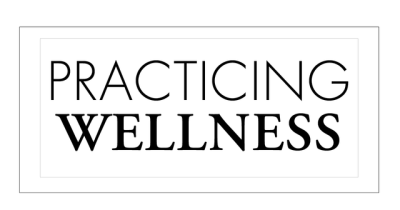
My father was a prosecutor for the entirety of his legal career, a span of more than 30 years. I wish I could say he rode off into the sunset of retirement with his law career nothing but a distant memory. Alas, he passed away from a heart attack on Nov. 18, 2020, at the relatively young age of 60. I can’t tell you how much longer he planned to work, but I do know that had he wanted to retire, he could have.
The months leading up to his death were tense. As I’m sure some prosecutors can attest, election season brings with it stress and uncertainty: what happens if the boss loses? Every four years, it was the same old song and dance; those around him knew his worries were misplaced, but he took nothing for granted even after watching four different prosecutors come and go. It isn’t fair to blame his loss entirely on the dynamics of his profession — pandemic fatigue and family history certainly played a role — but at the same time, it would take a special kind of willful ignorance to ascribe the timing to coincidence.
At this point you may be thinking, “So what? Go tell it to your therapist. Leave the wellness column to the experts. Where’s the wellness advice?” You might even be channeling noted 21st century philosopher Chris Rock: “He ain’t talkin’ about me.”1
Thoughts of retirement, aging, and death are uncomfortable and much more easily pushed aside than pondered. Yet, the idea of lawyers overworking themselves dates back to ancient Rome, with Seneca lamenting the lawyers chasing earthly accolades, accumulating more wealth than they needed, and arguing on behalf of clients who didn’t care about them, stating, “For what will you leave behind you that you can imagine yourself reluctant to leave? Your clients? But none of these men courts you for yourself; they merely court something from you.”2
No, there won’t be much concrete advice offered this time around. Instead, hear this plea to contemplate how your hours are spent and whether it might be judicious to reallocate them elsewhere. To be clear, this is not meant to excoriate attorneys with a passion for law that carries them strong into their golden years or push seasoned attorneys toward retirement. On the contrary, it’s an appeal to attorneys young and old to examine where health falls on their list of career priorities.
With the average American lifespan rising from 70 in 1970 to 78 in 20203, law careers are longer than ever before. No less than the Michigan Supreme Court has acknowledged the need for lawyers to envision the near future of their practice by issuing Administrative Order No. 2020-15, which amends MCR 9.119 effective Sept. 1, 2023, to require an interim administrator as part of the annual licensing statement. This reflects the unfortunate reality that the number of attorneys who work until they are physically incapacitated is rising. While some may experience financial constraints that leave them with no choice, others reach this point through pursuit of wealth, prestige, or the inextricable entanglement of identity and profession (which I suspect is most common.) Consider how you would answer if a stranger asked you what you’re good at. I’m willing to bet that for many of you, “I’m a good lawyer” was your immediate answer. Regardless of the reason, those who willfully choose to overwork themselves are trading their health for whatever benefits they believe they derive.
We know the toll the legal profession takes on lawyer health and wellness thanks to the 2022 ABA Profile of the Legal Profession. In it, 30% of respondents reported hazardous drinking, 58% reported moderate to severe stress, 19% reported moderate or severe anxiety, and 17% reported moderate or severe depression. Just as alarming are the responses regarding the legal culture and time management. When asked to characterize their work weeks, 51% responded they often work long hours, 17% indicated their job does not allow them to spend adequate time with their families, 19% do not make time for themselves, 28% do not take adequate breaks during the workday, and a whopping 56% of respondents indicated they feel pressure not to take vacation time.4
Despite those sobering statistics, the impulse to risk health and well-being past the point of what is reasonable is understandably strong. Earning a law license is a monomaniacal effort (or so I’ve been told) that requires a prominent internal drive. It’s a daunting task, then, to decelerate after maintaining that momentum for so long. As former French President Charles De Gaulle noted, “It isn’t easy for a man to force himself into a discipline of idleness, but it is essential.”5 The process requires effort, whether it be creating a more distinct boundary between work and home, allowing a practice to shrink, or fully committing to retirement. As Seneca wrote, “Reflect how many hazards you have ventured for the sake of money, and how much toil you have undertaken for a title! You must dare something to gain leisure, also.”6
Austrian psychiatrist Victor Frankl famously listed love and purposeful work as two of his three pillars of meaning,7 and few occupations are as purposeful as practicing law. Not coincidentally, the third pillar is suffering. If you’ve concluded that you find more meaning in your suffering than in your practice, it may be time to evaluate where your health falls in your overall hierarchy.
Whether you’re a big law attorney whose identity is interwoven with being a lawyer, a solo practitioner accepting every case out of fear it might be the last, a public servant diligently donating extra hours to Uncle Sam, or a general practitioner who’s realized their reason for continuing to practice law is not the same as their reason for entering the field, when you’re ready to make changes to improve your overall well-being, the Lawyers and Judges Assistance Program exists to offer resources, guidance, and support.